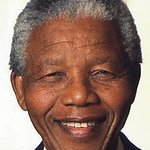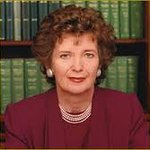Nelson Mandela was inspired to make a difference after hearing the stories of his ancestors’ valor told by his ward, the Thembu regent, Chief Jongintaba Dalindyebo.
In his mid-twenties, Mandela became increasingly involved in political activism, joining the African National Congress (ANC), which was formed shortly before his birth to create an equal, multi-racial South Africa.
Not long after joining the ANC, he helped to form the ANC Youth League in a bid to increase youth activism and help end racism. In 1948, just four years after the formation of the ANC Youth League, apartheid was introduced, stripping black inhabitants of South Africa of their rights and enforcing racial segregation.
Mandela was arrested several times and charged with treason and sabotage for his political views and involvement in protests, but he continued to fight for freedom and equality. During his final trial, in which he was facing the death penalty, he spoke to the court:
“I have fought against white domination, and I have fought against black domination. I have cherished the ideal of a democratic and free society in which all persons live together in harmony and with equal opportunities. It is an ideal which I hope to live for and to achieve. But if needs be, it is an ideal for which I am prepared to die.”
He was sentenced to life imprisonment, but continued to fight for racial equality during this time, and after 27 years, on February 11, 1990, Nelson Mandela was released.
After his release, he appeared at the Nelson Mandela: An International Tribute for a Free South Africa concert in London’s Wembley Stadium. He continued traveling around the world, encouraging governments to support sanctions against the apartheid government, using international pressure to make a change for the people back at home.
Mandela received the Nobel Peace Prize in 1993, and became the first democratically elected president of South Africa in 1994 — the first year in South Africa’s history in which all races were allowed to vote.
Mandela continued to speak out about inequalities globally, becoming an advocate for a variety of social and human rights organizations including the ONE Campaign and SOS Children's Villages. In October 2004, Mandela was Action Against Hunger's award recipient at the “Restaurants Against Hunger Campaign” gala in honor of World Food Day.
Mandela also created his own organizations to tackle serious world issues, such as the Nelson Mandela Children's Fund, started in 1995, which develops partnerships and initiates programs to empower and improve the well-being of children and youths.
The Nelson Mandela Foundation was founded in 1999 to use his experience and knowledge to create strategic networks and partnerships in pursuit of social justice.
His 46664 campaign, founded in 2002, aims to help raise global awareness of AIDS/HIV.
Mandela convened The Elders, a group of world leaders who choose to focus their energy on promoting peace, justice and human rights, in 2007.
He died in 2013.
Copyright © 2025 Look to the Stars, All rights reserved.
Nelson Mandela has passed away, but we remember his charity work.
Charities & foundations supported 28
Nelson Mandela has supported the following charities listed on this site:
- Make Poverty History
- Mercury Phoenix Trust
- Mineseeker Foundation
- NBA Cares
- Nelson Mandela Centre of Memory
- Nelson Mandela Children's Fund
- ONE Campaign
- Reach For A Dream Foundation
- Red Cross
- SOS Children's Villages
- St. Mary's Hospital
- The Elders
- United Nations Development Programme
- Walter Sisulu Paediatric Cardiac Centre for Africa
Other supporters of the same charities & foundations
Insights
4 related places
Causes supported 30
Abuse, Adoption, Fostering, Orphans, AIDS & HIV, Animals, Autism, Cancer, Children, Civil Rights, Disaster Relief, Economic/Business Support, Education, Environment, Family/Parent Support, Gender Equality, Health, Homelessness, Human Rights, Hunger, LGBT Support, Literacy, Mental Challenges, Miscellaneous, Peace, Physical Challenges, Poverty, Refugees, Sports, Water, Weapons Reduction, Women
Official web sites
No web sites are known










